

Your Later Life



Legacy donations help doctors deliver urgent medical care
Behind every life saved, there’s someone like you. Help doctors provide life-saving support through your Will. Gifts left in Wills are more than generous; they are vital.
Every day, Médecins Sans Frontières/ Doctors Without Borders (MSF) teams deliver emergency medical care to people caught in some of the world’s most urgent crises, from war zones and natural disasters to disease outbreaks and refugee camps.
The lives we save start with the gifts you leave One in six of our projects worldwide is funded through legacy giving. These extraordinary contributions help ensure we remain independent, impartial and ready to respond without delay or compromise.
Our ability to act quickly, often within hours, is made possible by the generosity of people who believe in our mission. Unlike many organisations, MSF doesn’t rely on government funding. This independence allows us to go where others can’t and put the needs of patients first.
Why leave a gift in your Will?
Your legacy can help our teams provide lifesaving care where it’s needed most. Whether it’s delivering babies safely in a conflict zone, vaccinating children during a deadly outbreak, performing emergency surgery or supporting mental health services, your gift has the power to save lives. No matter the size, it makes a lasting difference.
Today, our teams — including doctors, nurses and logisticians from Ireland — are on the ground in some of the most dangerous places in the world. From Gaza to Sudan, Ukraine to Yemen, they are delivering urgent medical care under some of the most challenging and volatile conditions imaginable. Your gift helps make that possible.
Including MSF in your Will is a simple, thoughtful act, but its impact is far-reaching. It ensures that future generations can receive emergency care when they need it most, even when the rest of the world cannot or will not respond.
A simple act. A lasting impact.
Leaving a gift in your Will to MSF is one of the most meaningful decisions you can make. Together, we can continue to save lives — today, tomorrow and far into the future.


Legacy gifts in wills are on the rise
Have you considered including a legacy gift in your will to a cause that means something personal to you?

You may be writing your first will or amending it to take account of changing personal circumstances as you go through life. As in other countries, interest in this impactful way of supporting a charity or cause is growing in Ireland.
In fact, one in four Irish people intend to include something in their will, according to public research published by the Charities Regulator this year.
Why are legacy gifts in wills so impactful?
Charitable gifts in wills, whether cash or other assets, can strategically help those less well off in society or can be an opportunity to enhance local communities or services, protect the environment, look after animals or contribute to life-saving medical research.
The personal satisfaction of including a legacy gift in a will that reflects the values and life experience of the will writer, or in memory of a loved one, makes these gifts deeply special and lifeaffirming.
From a charity’s perspective, legacy gifts are generally unrestricted, which means they can be used strategically — where they are most needed or for unmet needs that cannot be funded from existing resources or by way of statutory funding for core day-today services.

Legacy gifts can also allow for future planning or contribute to new capital projects, which can be transformational.
A shared vision of the future
If you already support a charity or have a cause in mind, why not have a no-obligation chat with them about how a potential legacy gift could make a difference in the future?
They would be glad to explain their work and impact or discuss how they are planning to fulfil their mission in the years ahead.
As we know, our world is full of uncertainty, and legacy gifts can powerfully lessen this turbulence for vulnerable people and services in the future.
If everybody included a gift in their will, imagine how our shared future society could become more positive and hopeful. It’s a powerful thought.

Derek Bell Charity Trustee, My Legacy
Sponsored by
Médecins Sans Frontières
Dr Peter Garrett Chairperson, Board of Trustees, Médecins Sans Frontières Ireland
Leading the way in disability services and ageing support across Ireland
A leading disability services provider, supporting 181 services nationwide in 2025, delivers award-winning, person-centred care. With adaptable, sustainable initiatives across residential, respite, outreach and home supports, it remains committed to responsive, future-ready services.
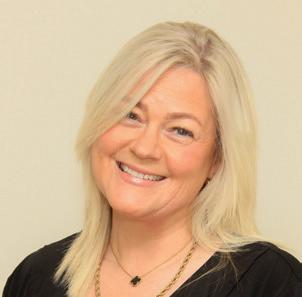
Grainne Fogarty Director of Care, RehabGroup
Our key strategic priority at RehabCare has been supporting people with disabilities to age well, safely and with dignity in their own communities. With 71 residential services across 19 counties, it enables individuals to remain in familiar surroundings as they grow older, surrounded by the people and places they know best.
Day services supporting older people
We currently support 904 older people in day services across Ireland. Support is structured around seven evidence-based pillars, focusing on communication, relationships, social inclusion, autonomy, wellbeing and tailored health and social care. The support we provide is dynamic and tailored to the changing needs of the individuals we support.
Initiatives and in-home support

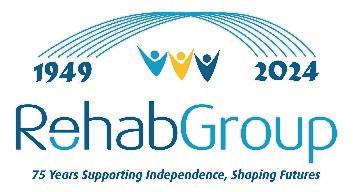
Central to our mission to provide age-appropriate services is Age’ducation, a national initiative developed by RehabCare to address the unique needs of people ageing with a disability. The programme centres on three pillars: identifying the education needs of older individuals, training those who support them and adapting organisational systems to better respond to ageing. Age’ducation promotes best practice and drives service development across the country.
How family philanthropy connects generations and creates impact
Philanthropy can bring families closer, strengthen values, and unite generations in creating real change for communities and causes they care about.

Hazel Hennessy Head of Communications and Relationships, Philanthropy Ireland
At Philanthropy Ireland, we believe philanthropy is more than giving; it’s a powerful force connecting generations.
Deepening bonds through shared giving
Positive Ageing Week is the perfect moment to highlight how philanthropy becomes a source of good within families, deepening relationships and sparking conversations about what truly matters.
Among our members, family philanthropy takes many shapes. Some families come together to choose causes to support now or support in the future through
Our CareLink Service offers in-home support to older adults, adults and children with disabilities nationwide. We have considerable experience in supporting older people and individuals with disabilities. Our home-based services support clients in all aspects of life, including social participation and engagement in social and leisure activities, such as going for a walk, meeting friends or personal care. All these activities help give a sense of independence and provide the primary carer with a break.
Committed to the whole family and community Families are an integral part of our service provision. We are part of many life milestones, and for this, our teams feel very privileged. Many of our clients have been in our service for more than 20 years, from small children who are now young adults with independent lives, and we hope to continue supporting them throughout their entire life journey.
Our commitment to inclusion and collaboration extends beyond service delivery. The organisation plays an active role in shaping national policy through its representation on the Commission on Care for Older Persons and the National Clinical Programme for Persons with a Disability. As Ireland continues to evolve its approach to disability and ageing, RehabCare remains at the forefront, championing dignity, choice and purpose for all.

legacy giving. Others establish foundations, trusts or donoradvised funds for long-term impact.
No matter the format, philanthropy offers families a chance to understand each other’s motivations and priorities on a deeper level, coming together to work on different projects as a unit or providing opportunities for family members to lead out on specific pieces of work that reflect their own passions and strengths.
Passing on values and responsibility
Many philanthropists involve younger family members in their giving, not just to instil values like empathy and community service
but also to teach important lessons about wealth, responsibility and the significance of giving back.
Second and third-generation philanthropists are stepping up, carrying forward family traditions while engaging with issues they care about in fresh and personal ways. They’re blending respect for family legacy with a desire to address today’s pressing social challenges.
Supporting families to give well Giving effectively isn’t always simple. Ensuring philanthropic funds truly create positive change requires thought and planning. The philanthropy community in Ireland is growing, but so are the opportunities and support structures for philanthropy.
At Philanthropy Ireland, we’re striving to support our members to increase their impact, discover ways to engage multiple generations and connect with peers who share similar journeys.
There’s no single blueprint for philanthropy, but there’s a wealth of learning to draw from the experiences of families across Ireland who are doing fantastic work. During Positive Ageing Week, we celebrate philanthropy’s role in bridging generations, strengthening family bonds and building a legacy of hope and community impact.
Sponsored by RehabCare
Digital monitoring tech that’s designed to support healthy ageing
Mobility problems or health issues can prevent older people from living active, independent lives. Today’s digital wearable healthcare tech offers a life-changing solution.
“Older people today shouldn’t be underestimated,” says Mark Hindle, Managing Director UK and Ireland at telecare solution provider Tunstall Healthcare. “They want to remain independent. They want to remain active.”
Assisting older people and preventing falls Unfortunately, they may also have health problems or mobility issues and be prone to falls. This is where digital technology — such as wearable fall detectors and alarm pendants – can be a lifeline.
Hindle explains: “Digital has broadened the range of independent living technology we’re able to produce for use in a range of settings, such as care homes, sheltered housing and people’s own homes. It’s also made remote monitoring much easier.”
Easy-to-use technology that can save lives Hindle points to a Tunstall-designed digital wristwatch that detects falls and raises alerts automatically, with a built-in call button for wearers to manually request emergency help — wherever they are.
“The call goes through to our monitoring station, which is manned by our teams 24/7,” he says. “Because the device is equipped with GPS, they’re able to pinpoint exactly where it is and also speak to the wearer. Digital makes all of that possible.”
Because the device has been designed as a watch, people are more likely to wear it. Such tech can also generate important health data, such as heart rates and step counts. This enables users to manage their health and wellbeing more effectively and even recognise issues before they become serious.
Example of wearable tech power and capability
Hindle recalls how the heart rate monitor on a wristwatch saved the life of one customer. “She told us how she began monitoring her heart rate when she started to feel unwell and could see there was an issue,” he says. “Forty-eight hours later, she was in an operating theatre having heart surgery. So while this technology is easy to use — data appears at the touch of a button — it can also be life-changing — and life-saving.”

How Ireland plans to meet the housing needs of an ageing population
As Minister of State for Older People and Housing, I am committed to ensuring our older people can live comfortable and secure lives, with proper care and housing supports in place to do so.
Ireland has the fifth-highest life expectancy in the EU, with the most recent figures from the OECD showing that on average, Irish people are living to 82.6 years of age, compared with a European average of 81.5 years. We are therefore prioritising an ambitious set of proposals to plan for the country’s demographic changes and an older population.
National policy on housing options for older people
One of my first actions upon my appointment as Minister was to establish a working group to develop a new national policy on voluntary housing options for older people to live in their own communities. The group is currently examining flexibility on planning rules to allow for a home to be adapted or extended to include separate self-contained living spaces to meet the needs of older people.
It is also examining increasing investment in age-friendly homes, mandating local authorities to find suitable sites for housing specifically designed for older adults and supporting ABHs (approved housing bodies) to manage and develop senior housing with onsite support and wraparound services.
Voluntary rightsizing to cater for changing needs
Advancement of a broader policy approach on voluntary rightsizing is also being pursued. As people become older, their housing needs may change. We want to ensure suitable accommodation choices are available for those individuals in their own community, if that is their will and preference.
Part of this will also involve asking lenders to look at bridging finance for older people who wish to voluntarily rightsize, where they may not normally be approved for a mortgage but want to buy a more suitable home for their needs before the sale of their existing home has concluded.
‘Rightsizing’ promotes independence and sense of community in later life
While ‘downsizing’ has traditionally been used to describe older people moving into smaller homes, the term ‘rightsizing’ is being adopted by age-friendly housing associations to create living spaces tailored to individual needs.
Steve Loveland, Head of Clann, says: “We are not sheltered housing; we are age-friendly, social housing. Rightsizing simply means moving to a home that better suits your needs later in life. It’s about choice, autonomy and re-engaging with life.”
Comfort and community engagement
Established in 2021, Clann provides a means to age-in-place in social and affordable housing, offering security of tenure in a safe and inclusive environment, where the essence of community lies in relationships formed. “The community not only benefits our residents; it also brings reassurance to families knowing loved ones are not living in isolation but are part of a vibrant, welcoming environment,” says Loveland.
Communal areas are designed to foster a sense of community, making it easier for residents to connect and participate. “We have housing officers on site to support our residents, but the focus here is on connection, belonging and community,” he adds.
Developing a comprehensive design guide for developers, Loveland emphasises accessible and thoughtful design: “When you design for those with the highest needs, you create homes that work for everyone. We are creating age-friendly, universally designed homes that allow people to age well.”
Collaboration for a successful future
Working closely with local authorities and community partners, Clann aims to play an active role in creating a future where older people can live independently, as part of a vibrant and supportive community.
“Innovation is the natural by-product of collaboration,” says Loveland. “No single organisation can meet the complex and evolving needs of an ageing population, but we are playing our part to create a future where ageing is met with opportunity, dignity and respect.”
Mark Hindle Managing Director UK & Ireland, Tunstall Healthcare
WRITTEN
BY Tony Greenway

The recommendations of the working group will be considered in the context of the forthcoming Housing Plan. Through these measures, we aim to provide older people with greater security, choice and dignity in their housing options.

Kieran O’Donnell T.D. Minister of State for Older People and Housing
As an added benefit, when older people move into age-appropriate housing, they free up family homes, creating more affordable housing for younger generations. The publicly available, annual Simon Brooke lecture aims to address the challenge of social stigma around age-friendly housing, recognising and learning from excellence in housing policy and practice.

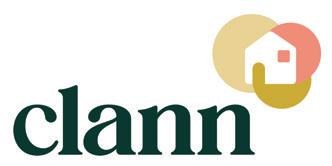
Sponsored by Tunstall Emergency Response
Sponsored by Clann
Steve Loveland Head of Clann, Clann WRITTEN BY Bethany Cooper

It is becoming more important than ever to make sure our savings are keeping up with the rise of inflation.
Protect your nest egg and beat inflation with safe, secure savings across Europe
With no fees, no subscriptions and plenty of choice for your savings, one platform hopes to encourage people to protect their savings with secure, high-interest savings accounts.

Many European countries boast a wide choice of banks, each offering a range of savings schemes. Ireland has only three domestic banks, and this lack of competition means Irish savers are frequently left with returns as low as 0.13%.
Eoghan O’Hara, Country Head Ireland, Raisin, discusses this problem: “It is becoming more important than ever to make sure our savings are keeping up with the rise of inflation, but Ireland traditionally has limited options.”
With many over-50s left worrying whether their hard-earned nest egg is keeping pace with inflation, O’Hara implores: “People should be taking the time to review how much their savings have made over the last six months. Speaking to a financial advisor can give you an idea of what is available.”
High-interest savings accounts under one roof
easy-access accounts, savers should be earning a fair return,” O’Hara explains. “If not, they’re losing much-needed spending power. We are working with banks throughout Europe to provide more choice to Irish savers.”
Choice, security and better returns
With no sign-up fees and a dedicated support team, the platform is positioned as a straightforward option for those who want to safeguard their nest egg. “We aren’t asking people to change their banks; we are simply providing a safe, accessible platform where people can protect and grow their money,” assures O’Hara.
as moving money around can be daunting and scary, but security is of the utmost importance to us,” stresses O’Hara. “We only allow savings up to the guarantee level so that our customers can be fully confident that their nest egg is protected by the same protection which is offered at Irish National Banks.”
Committed to customer service
The platform is free to use and supported by a dedicated Irish customer care team, available Monday to Friday via your online account, email or phone call.
Sponsored by Raisin

Founded in Germany, Raisin is a fully licensed German bank, supervised by the Federal Financial Supervisory Authority (BaFin) and the European Central Bank (ECB). The bank’s platform provides Irish savers access to deposit products from 28 banks across Europe, including fixed-term deposits and easy-access accounts to suit the needs of each user.
Access to trusted European banks is housed on one user-friendly platform, where deposits can be made from as little as €1. “Even with
“We have terms from as little as three months all the way up to seven years — the choice of which depends on your individual circumstances, and people can top up or withdraw anytime with flexible demand deposit accounts,” he adds. “We are dedicated to expanding our partnerships with trusted European banks to provide as much choice as possible to our Irish customers.”
Protected by the European Deposit Guarantee Schemes
Many people understandably worry about the security of their money. However, all banks on Raisin’s platform participate in the European Deposit Guarantee Scheme, protecting deposits up to €100,000 per customer, per bank.
“People have a right to be wary,
“Our system is simple, secure, and supported. Every step of the process is backed up with FAQs, online help and phone support,” says O’Hara.
“Our customers can call us up with any questions, concerns or just to talk through the sign-up process. We will always prioritise our customer relationships, backed by human-tohuman contact and mutual trust.”
Find the right fit for your finances
The platform provides a clear overview of all your accounts in one place, giving you the ability to track your savings from wherever you are. Their user-friendly system can be tested out with as little as €1. They also have a handy online calculator, which shows how much your savings could be earning through the platform, helping you to decide whether it’s the right fit for your financial needs.

Eoghan O’Hara Country Head Ireland, Raisin
WRITTEN BY
Bethany Cooper
Trace your family for free and learn about your own history
Learn about the free family history service that’s here to guide you, with expert advice and practical resources to help you get started.
For anyone beginning a family tree, the National Library of Ireland offers guidance and resources to help turn curiosity into discovery.
Getting started with genealogy
The National Library of Ireland’s family history service provides free advice by email at genealogy@nli.ie. In-person consultations can also be arranged in the dedicated research room located in our Kildare Street premises. These sessions are designed to help with questions about sources, records and research strategies. A Reader’s Ticket is required for in-person consultations, and details on how to obtain one are available at nli.ie/visit/readersticket.
For those just starting out, the Library has created simple templates that can be downloaded or printed to keep track of names, dates and family connections. These can be found at nli.ie/family-history/ getting-started. They are an ideal way to organise your research from the beginning.
What records are available?
A key date for Irish family research is 1864 — the year government civil records of births, marriages and deaths began. Before that, church registers of baptisms and marriages were the main source of information, though not all have survived. Census returns and property records also provide valuable insights, helping to uncover names, ages and family connections.
The Library’s Further Research page at nli.ie/family-history/further-research offers clear guidance on how to use these sources effectively.
Explore Ireland’s collections
Beyond genealogy, the National Library of Ireland is home to more than 12 million items that tell the stories of Ireland. Our collections include books, periodicals, manuscripts, maps, photographs, ephemera and digital material and archives.
You can search the catalogue online at catalogue.nli.ie, exploring by subject, location or even through an interactive map tool. Whether you are tracing ancestors or exploring Ireland’s stories, there is always more to learn and discover.

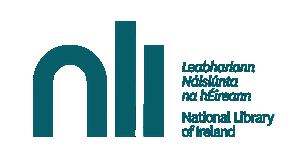
Emphasising social connection after retirement
By building social connectedness into retirement planning, we can ensure we get the most out of this rewarding life stage.
Retirement means different things to different people. For most of us, though, retirement brings with it the question — what will I do with my time?
Reframing retirement
We become so accustomed to the structure and routine that work and other responsibilities provide, and it can be challenging to adjust when these fall away. Having a plan is crucial, but what if we first reframe the question so that it is less about what we will do with our time and more about who we will spend it with?
The power of social connection
As people, we are inherently social beings. Forming social bonds with those around us to help us best adapt to our environment is a fundamental part of our nature. It is also essential for our health, wellbeing and happiness. This is no less true post-retirement when we find ourselves suddenly needing to adapt to a completely new normal.
In Ireland, we are fortunate to have a wealth of community organisations, clubs and societies. They are a great way to meet like-minded people, form new friendships and maintain social connectedness.
Getting the most from your retirement
Active Retirement Ireland is a community organisation that began more than 45 years ago with a mission to help people stay connected postretirement and get the most out of this well-earned life stage. Today, the charity has a network of more than 21,000 people across approximately 550 local groups around the country. Each local group is run by the members themselves; they organise activities, excursions, holidays, information sessions and courses to do together. Anyone retired or semi-retired is welcome to join their local group.
Retirement is a wonderful opportunity to connect with people who share common interests or may even introduce us to new ones. On the question of planning your time post-retirement — look after the ‘who,’ and the ‘what’ will take care of itself.
Financial freedom to do what you want
Meabh* thinks in terms of freedom, as well as security; she wants to meet the additional expenses that come with an independent frame of mind.
Meabh, in her 80s, lives comfortably in a three-bedroom house in South County Dublin, where she moved nine years ago after deciding to downsize.
Flexibility and financial security
For Meabh, financial security has always meant more than covering the essentials; it’s about being freed to live life on her terms. When she downsized, some of the money went towards her pension — covering her day-to-day needs — and some into renovations to her new home. Later, what she really wanted for her financial security was a little extra flexibility to do more of what she wanted, when she wanted.
Equipped with support and information
Meabh saw an advert for the Spry Finance Lifetime Mortgage on television and decided to learn more about it. She met with a customer consultant who guided her through the details, explaining the product clearly and answering all her questions. Meabh didn’t rush her decision. She spoke with her solicitor and accountant, then discussed it with her family. Taking that extra time meant she felt completely comfortable with her choice. Her view is that she’s worked hard for what she has, so she should be able to enjoy it however she chooses — by, for example, taking a sun holiday in the Canaries.
How it works
A Spry Lifetime Mortgage allows over-60s to release equity in their property without selling up or moving out. Someone in their 80s, like Meabh, can realise up to 35% of the value. Repayments are optional, not a requirement.
*True customer case study using fictional name
Warning: While no interest is payable during the period of the mortgage, the interest is compounded on a monthly basis and payable in full in circumstances such as death, permanent vacation of, or sale of, the property.
Warning: Purchasing this product may negatively impact your ability to fund future needs.
Steven Skeldon Family History Services Manager, National Library of Ireland

Fran Brennan CEO, Active Retirement Ireland
WRITTEN BY Ailish McGlew
Sponsored by National Library of Ireland
Supporting wellbeing through art in later life
Ageing well is about more than physical health. Emotional connection, social interaction, and opportunities for creativity are equally vital to quality of life.
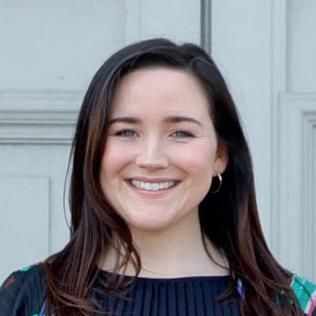

At IMMA, the Horizons programme creates meaningful opportunities for older adults and communities to engage with art in ways that promote brain health, creativity and a sense of wellbeing.
Art and wellbeing in later life
Initiatives like Azure, In the Moment and Slow Art invite people to pause, connect and experience art in new ways. Art participation is proven to lower stress, ease isolation and support memory and cognitive health while sparking joy, curiosity and connection.
From dementia-inclusive tours to sensory workshops and mindful looking, care and creativity are placed at the centre of later life.
Dementia-inclusive art experiences
explore mindfulness through art. Participants spend time with artworks and respond through creative activities in a calm, welcoming communal space, where what is felt and sensed matters as much as what is said.
Workshops run seasonally, four times a year, on Tuesdays.
• Autumn sessions: currently running
• Winter sessions: Nov 4, 11, 18 & 25
Slowing down with art
Art participation is proven to lower stress, ease isolation and support memory and cognitive health.
The Azure programme offers free guided exhibition tours designed for people living with dementia, along with family, friends or carers. It provides a relaxed social way to engage with artworks and each other.
• When: First Friday of every month, 11am
• Book: Online or by email
Armchair Azure brings the experience online, with bespoke sessions available for nursing homes, care facilities and support groups.

Mindfulness through art
In the Moment offers sensory workshops where adults
Slow Art sessions encourage visitors to take time with a single artwork — noticing details, colour and texture you might miss at a glance. Guided by an IMMA facilitator, you can look, discuss and reflect together, promoting curiosity and imagination through a shared experience. Rather than treating art as a product to be consumed, Slow Art emphasises process, connection and shared experience with a focus on wellbeing, inclusion and social engagement.
• In-gallery tours: First and third Saturday each month
• Online session: Second Wednesday of each month at 1pm
• Resources: Guided videos available anytime
Longstanding history of art and ageing
Bairbre Ann Harkin, Curator at IMMA Horizons, says: “We believe deeply in the power of lifelong creativity throughout the life course. We have a longstanding history of dynamic art and ageing programmes that enhance wellbeing, nurture cognitive function, build self-esteem and strengthen social bonds in older people.”
For
For


Bairbre Ann Harkin Curator, IMMA Horizons
Sundara O’Higgins Curator, Mat Leave, IMMA Horizons
Sponsored by IMMA Horizons
Age-friendly university shapes a lifelong learning future
Discover the initiative that redefines lifelong learning, fostering intergenerational connections, cultural exchange and opportunities for older adults.
Since 2012, Dublin City University’s (DCU) Age-Friendly University (AFU) initiative has redefined the meaning of education in the 21st century by creating opportunities for older people, challenging outdated narratives on ageing and strengthening intergenerational exchange.
Reimagining education across the lifespan
As the world’s first AFU, the university is dedicated to challenging the notion that higher education is reserved only for the young. Our programmes ensure that people of all ages — particularly those in later life — can access opportunities for learning, research, wellbeing, social and cultural engagement.
Expanding opportunities for older people
Whether through ‘audit’ access to undergraduate and postgraduate modules or short courses in creative writing, art appreciation and music, older people can engage with higher education without the pressure of exams, enjoying the campus experience. Annual events — such as the Taste of DCU, Positive Ageing Week and Intergenerational Week — showcase these opportunities, inviting the wider community to explore university life and discover the breadth of activities across campus.
As the first university in Ireland to have been awarded Erasmus Adult Accreditation for the AFU participants, it is uniquely positioned to expand cultural exchanges and learning visits by opening new pathways for collaboration and lifelong learning.
Fostering intergenerational connections
The AFU is equally about curiosity and connection. By creating shared spaces where students and older adults collaborate, exchange perspectives and challenge stereotypes, it promotes intergenerational understanding. Guest lectures, collaborative projects and joint research initiatives bring generations together to explore identity, creativity and shared values, reframing ageing as contribution rather than decline.
Contributing to a fairer society
As Ireland’s demographics shift, the AFU model provides a vital blueprint for social inclusion and active ageing. By welcoming older adults, we enrich the entire campus, creating a dynamic environment where generations learn from one another. This fosters new research possibilities and ensures innovation addresses the needs of our whole society. DCU’s Age-Friendly University is a powerful demonstration that curiosity and the drive to contribute have no age limit.

Celebrating ageing without limits in Ireland this 2025
The estimated population of Ireland in 2024 included more than 1 million people aged 60 or older, which means building an inclusive and age-positive society in Ireland is vital.
The lives of older people in Ireland are far better now than they were 100 or 50 years ago. Globally, people are living longer, healthier lives and can look forward to many years of active older age — something to be celebrated. Yet, despite positive progress for older people, profound inequalities around ageing remain.
Ageism limits healthy ageing
Most Irish people will be healthy and active well into their 70s and 80s. However, many face barriers that can limit our ability to age well and independently. Age is one of the first things we notice about other people, but most don’t realise the things they say or think are ageist. Ageism, like any kind of discrimination, can happen in big, obvious ways and in smaller, day-to-day interactions.
Positive Ageing Week 2025
Positive Ageing Week is an Age Action initiative to promote the contribution older people make to our families, workplaces and society. From 29 September to 3 October, we will celebrate the vital contributions older people make to society. Older people play an integral part in strengthening the social fabric of our communities — as workers, carers, volunteers, activists and connectors. Their contributions are vital in fostering a strong sense of belonging across generations.
Take action today for YOUR tomorrow
Age Action’s work has tackled inequality in ageing for over 30 years. As we get older, staying connected remains just as important. Ageing doesn’t stop us from forming or keeping relationships, but certain aspects of later life, like retirement or changing health, can bring both new possibilities and new challenges. This year, we are delighted to launch a new campaign around sharing time with people of different ages with our ‘Time For Tea’ campaign.
By hosting a Time For Tea coffee morning, you can connect with friends and colleagues while celebrating and supporting older people. Sharing and connecting in today’s digital age is vital for everyone’s health. Take action today for YOUR tomorrow and host an intergenerational event this Positive Ageing Week.
Be part of a vibrant community that brings art to life
The Friends of the National Gallery of Ireland promotes art education as well as exhibitions, conservation projects, acquisitions and publications.
Connecting through collections
Friends enjoy a programme of exclusive events designed to nurture a deeper understanding and appreciation of our national collection. We also offer likeminded art lovers the opportunity to connect. The year ahead promises to be one of extraordinary art encounters at the National Gallery of Ireland, showcasing both global masters and Irish excellence. Friends enjoy free entry to all ticketed exhibitions, access to exclusive membersonly events, a copy of The Gallery Magazine and discounts in the Gallery Shop and Café. We also offer exclusive online content to enjoy at your leisure from anywhere in the world.
Start a new tradition with Turner Art has the power to inspire and connect. Every January, the Gallery becomes a place where family and friends gather to experience that magic through the exquisite watercolours of J.M.W. Turner. His luminous watercolour visions of Venice, the Alps and serene parklands offer a welcome escape from the winter gloom. In 2026, we’re delighted to welcome back our 31 Turner watercolours following their loan to the National Galleries of Scotland.
This year’s display will be enriched by works from artists inspired by Turner’s mastery of light, colour and atmosphere. As Turner once said: ‘Light is therefore colour.’ Bring your loved ones to the Gallery and be inspired together.
Join a community of art lovers
We believe in the transformative power of art to inspire and connect. We offer a range of membership options, including concession rates for ages 65+, special rates for full-time students or young people aged 18–25 and dual membership to share with a partner or friend. Children under 18 go free, so introduce the young people in your life to the power of art and dip in and out with the children or grandchildren as often as you like. Drop in, connect and escape, knowing your support helps care for and enhance the national collection for generations to come.
Dr Christine O’Kelly Director AFU, Dublin City University
Unit
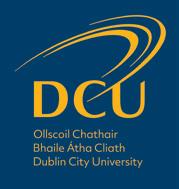
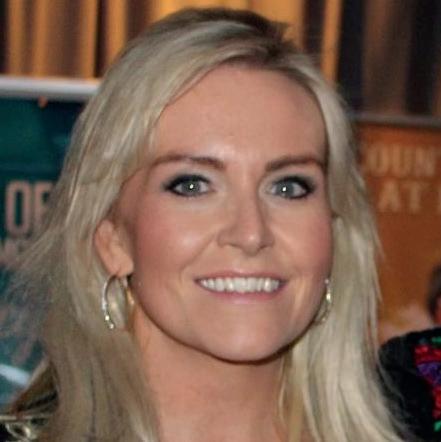
Sinéad Morrin Head of Development, National Gallery of Ireland
Find out more at nationalgallery.ie/friends

Carrie Benn Head of Fundraising and Communications, Age Action Ireland Find out more at ageaction.ie
Celebrate global masters and Irish brilliance — unlock exclusive access to art, events and more.
Sponsored by Friends of the National Gallery of Ireland
